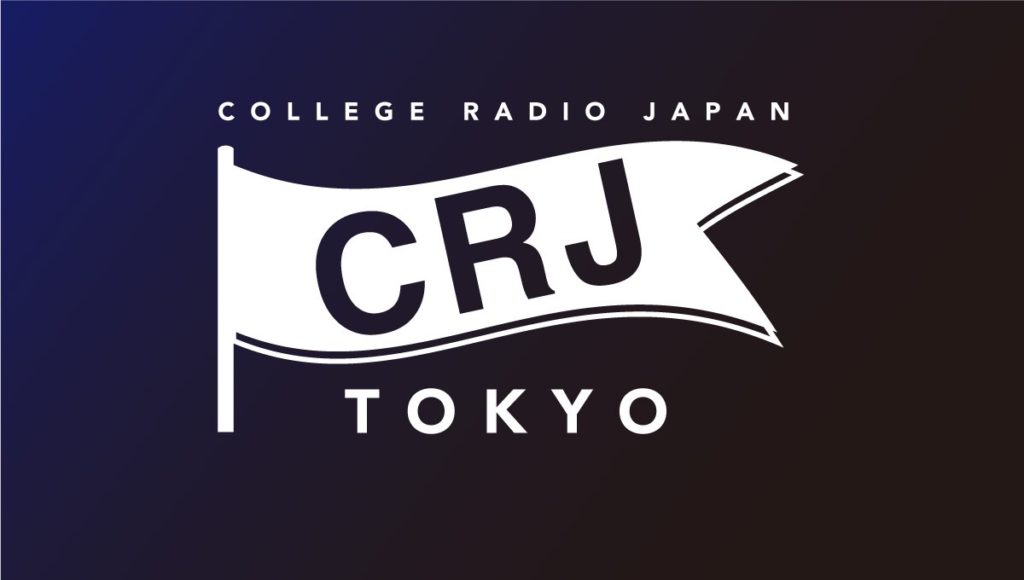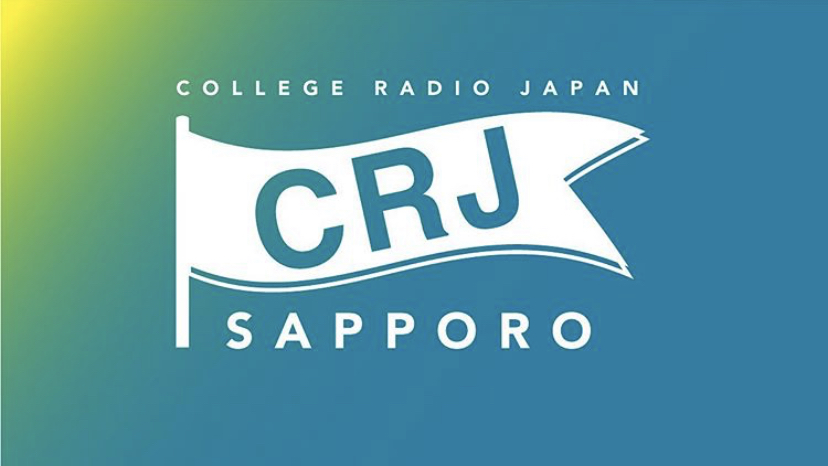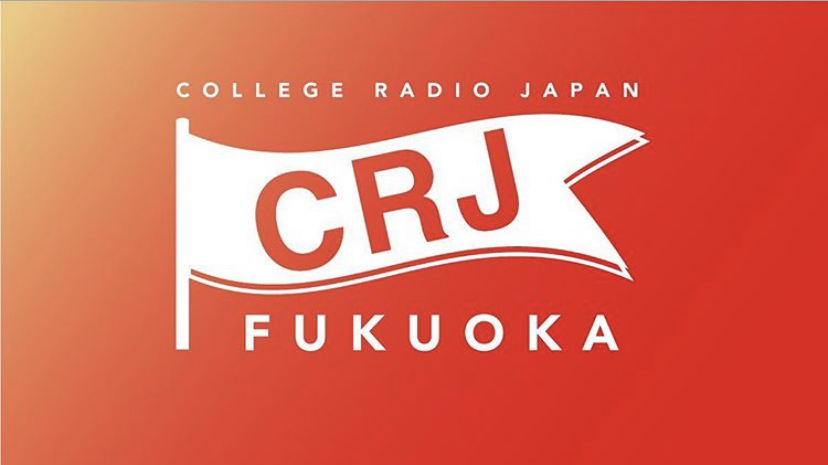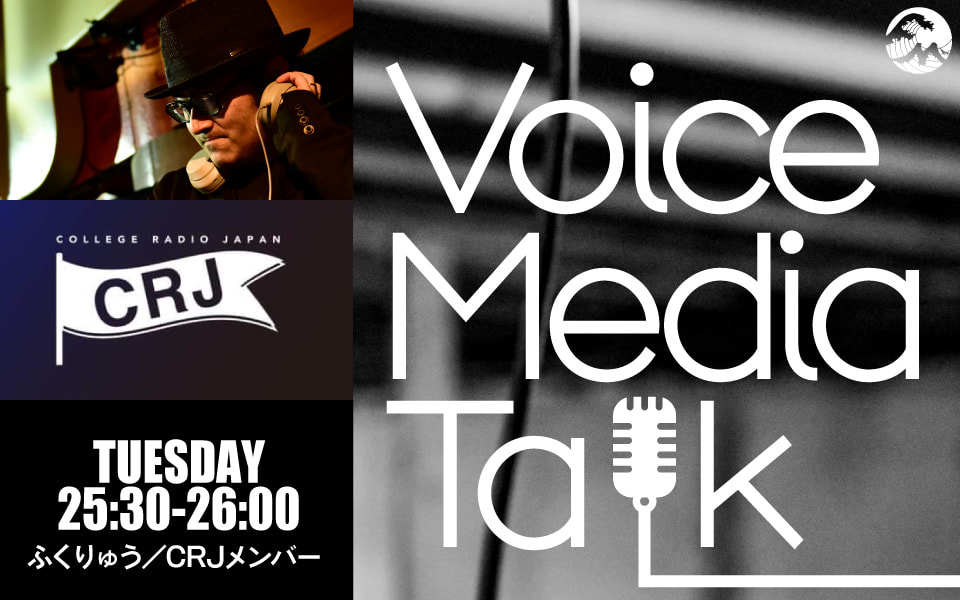


CRJ 最新チャート&PICK UP Vol.26

CRJ 最新チャート&PICK UP Vol.25


Interview&Text: Atsuko Arahata
2020年から2021年にかけて、ニューノーマルな生活様式とともに起こったのが、音声メディア業界のイノベーション。音声SNSやポッドキャストなど、様々なタイプのコンテンツが台頭する群雄割拠の時代となった。
そんな趨勢を早々に捉えて生まれたのが、毎週火曜25:30からFMヨコハマにて放送中の音楽トーク番組「Voice Media Talk(以下、VMT)」。“タメになる参加型”の音楽番組をテーマにしたこの番組では、火曜日のOA直前にClubhouseにて生放送がおこなわれている。また、音楽好きの集まる学生団体CRJ(College Radio Japan)のメンバーも一員となって番組を盛り上げている。
今回は番組DJを務める、音楽コンシェルジュ(選曲家)ふくりゅう(以下、ふくりゅう)と、番組ディレクターの王堂響子(王堂)にお話を伺った。音声メディア興隆期において実験的側面を持つこの番組に、作り手としてどのような想いで臨んでいるのだろうか。
・まず、番組を知らない方に向けて、改めてVMTってどういうラジオなのか教えていただけますか?
王堂: 名前の通り、ボイスメディアと連動して何かができたらいいなって思いから始まったラジオ番組です。
まず、もしかしたらリスナーの子たちが生まれる前かもしれないけれども、今聞いても新しいと感じる音楽を推薦してくださるコーナー、『令和シティポップリマインド』。次に、ふくりゅうさんのお詳しい、アプリ周りやNFTなどの最新のエンターテック情報を教えてもらう、『エンターテック最前線』というコーナー。最後が、番組の目玉コーナーでもある、ゲストの方を1人お招きして、60秒で曲をおすすめしてもらう『60秒ピッチ』。こちらはエディター、CRJの学生、アーティスト、音楽ライターなど、本当に幅広く出演していただいています。
ふくりゅう: そう、音楽の魅力をしっかり伝えられる番組があったらいいなっていうので、30分間の間にいろいろ詰め込んだって感じですね。
あと、「エレベーターピッチ」という、投資家と、出資してもらいたいスタートアップの子がいたとしたら、エレベーターで居合わせたときの数十秒の間で自分たちの会社・サービスの魅力を伝えて、興味を持ってもらうという意味の言葉があるんですね。それにちょっとなぞらえたのが『60秒ピッチ』でして。
王堂: 特に『令和シティポップリマインド』はふくりゅうさんが意図的にストリーミングで聴けないような曲を選んでくださることが多いので、できれば長くかけたいなって、いっつも編集してるんですけれど(笑)
・そのストリーミングのない曲を選ぶっていうのはどういう意図なんですか?
ふくりゅう: 当初は70~90年代の曲から今の感覚でも楽しめる曲を引っ張ってこようとしていて。でも幅が広いじゃないですか、めちゃくちゃ。だったらせっかくなので、ラジオでしか聴けない音源もあるよねってことで、ストリーミングにアップされてない曲の中からわざと選んでみました。エアチェックっていう、ラジオでかかってた曲を録音して聴いてた流れがありましたが、ちょっとそれに近い体験ができればという感じですね。
・そもそも番組はどのようにして出来上がったのでしょうか?
王堂: まずプロデューサーから、「音声メディアを使って何かラジオ番組ができないか」っていうお話がありまして。そこで私は、ダメもとでClubhouseでラジオの公開収録がしたいっていう企画書を書いたんですね。Clubhouseならギャラリーもアイコンとして見える形になりますし、自粛でみんな自宅にいながらできるなって思って。
最終的には番組の前に生でClubhouseでみんなで集まって、番組では入り切らなかったこぼれ話をして、この後の収録を聴きましょうって、そういう形に落ち着きました。
ふくりゅう: ちょうどラジオメディアが見直されたり、ポッドキャストも広がったり、あとは今年の頭にClubhouseも盛り上がったりと、そういう中でラジオ番組をもっと面白くするためにはどういうことができるかなっていうのを一番に考えて作った番組かなって思いますね。
今の時代、売上や再生回数を音楽の指標とするメディアって多いと思うんですけれど、なんかVMTではそうではなくて、もっと個人の想いの強さが基準になって紹介しているっていうのが、1つ大きなポイントかなと。
王堂: 取り上げてる内容の濃さはもちろんなんですが、みなさんが聴いてくれてる感をダイレクトに感じられるのはClubhouseと連動してるからなのかなって思いますね。
ふくりゅう: 誰か面白い人やちょうど話題に合う人が来てたら、ひっぱりあげていっしょに語ってみたり、もっと話が広がりそうだったらVMTのラジオ版のほうにも出ていただいたりっていうような、そういう広がり方が持てるののは面白いことかなと。
王堂: あとClubhouseすごいな~って思ったのは、ふくりゅうさんがいるからなんですけれど、ふらっとすごい方が来てくださることがあるっていう。
元々ふくりゅうさんと関係性のあった小室哲哉さんが、ふくりゅうくんの番組なら行くよって感じで、ふらっと遊びにいらして鍵盤の生演奏をしてくださって。そうなったら、小室さんファンに通知が行くわけで、200~300人のルームが出来上がってるわけですよ、いちラジオ番組のルームなのに。
そういうミラクルはこのメディアならではなのかなって思いましたね。ゲストブッキングしようとしたらめちゃくちゃ大変な方なんで。
・SNSが台頭しているような時代における、ラジオの意義はどう考えてらっしゃいますか?
王堂: このVMTは25時半からやってる番組なので、深夜のドライバーさんも聞いててもらったりしていて。自分たちが届いてるかもって思ってない層にも届いてるのは、公共の電波ならではの事だと思います。あとは本当に届けたい音楽を一番いい状態で聞いてもらえるっていうのはあるのかなって。
ふくりゅう: Clubhouseの場合、構成も考えずぐだぐだ喋ってるノリが楽しいっていうのと、何が起こるかわからないって楽しさがあると思うんですけれど、ラジオ番組は30分って時間が決まってるので、細やかな構成と編集であとから聴き直しても楽しめて、2021年ってどんな音楽シーンだったのかっていう記録ができてる番組になってるんじゃないかなって。
・CRJの方々もメンバーの一員ということですが、番組作るうえで大学生のこういう立場が役立ったとかはありますか?
王堂: そもそもCRJは毎週自分たちの推したい曲のチャートをつくってるんです。ラジオ業界で働いてると、レコード会社さんからオススメの新曲を貰ったりする立場ではあるんですけど、そのチャートにある曲はそういう音楽じゃないんですよ。それってどうしてかっていうと、彼らがSpotifyやApple Music、SNSから、いいと思ったものをいち早く持ってきて出来上がったチャートだからで。その感覚ってやっぱりメディア側にいると気づきづらいんです。
・最後に、今後VMTでもっとこんなことがしたいなどあれば。
ふくりゅう: そうだな、せっかくだからオリンピック・パラリンピックの音楽監督やられたFPMの田中さんに、彼の考える選曲術みたいなものを聞いてみると、今だから特に面白いかもしれないですね。
王堂: あと、いつかコロナが明けたら公開収録してみたいですよね。今リモートで収録してるので、みんなにでも会いたいし、リスナーさんにも会いに来てほしいしっていうのがコロナ明けたらの夢ですね。
誰もが番組を持つことができる時代、それに伴い音声コンテンツの可能性がますます広がる中で、VMTはSNSとラジオをシームレスに行き来し、コンテンツの伝え方によって音声メディアの新しい道を切り拓いている。また、音楽トーク番組という枠組みにおいても、数字で語ろうとする従来のメディアの対岸に位置し、コロナ禍でより希薄になった人の思いやつながりを大切する姿勢が印象的である。あらゆるジャンルの人たちが交錯する彼らの番組が独自の化学反応を起こしていく様を、OAから見届けるだけでなく、Clubhouseで一員となって盛り上げていきたい。
Voice Media Talk
From 2020 to 2021, innovation in the audio media industry happened along with the changes to a new lifestyle. There was growing interest in the radio, the originator of the voice media, audio SNS and podcast, now it’s an era of multi contents battling with one another.
The music talk show “Voice Media Talk(VMT)”, which is being broadcast on FM Yokohama every Tuesday from 25:30, was born by catching such a trend early on.
Under the theme of “practical and participatory” music program, It is being broadcast live at Clubhouse just before on-air on Tuesday. And the members of CRJ(College Radio Japan), a group of students where music lovers gather, are also the members to spice it up.
We interviewed Fukuryu, the music concierge (music selector), who is the program DJ, and Kyoko Odo, the program director. What are their thoughts as a creator of this program with an experimental aspect during the rise of voice media?
Could you explain what VMT is for people who don’t know?
Odou: As its name suggests, it started from our thought that it would be nice to do something along with voice media.
First part is called “Reiwa Citypop Remind”, which Fukuryu recommends the music that maybe had been released before our listeners were born but feel fresh. Next part, he talks about upcoming entertainment technology which is his strong area, “Entertainment Technology on the front line”. Last part is the most special one in which we invite guests and they recommend their favorite songs in 60 seconds, “60 Seconds Pitch”. Many editors, students in CRJ, artists, music writers, and so on are coming to our program.
Fukuryu: Yes, we wanted a program that conveyed the beauty of music, so we stuffed various things in 30 minutes.
There is a word, “Elevator Pitch”, which means having a person from a start-up company pitching an idea about the company or services in the same elevator to an investor in order to get attention. “60 second pitch” is somewhat similar to that.
Odou: Above all, in “Reiwa Citypop Remind” Fukuryu-san intentionally selects songs that we can’t find in streaming services, so I always endup wanting to play them longer than we should…lol.
What was the intention behind you selecting songs that are not released in streaming services?
Fukuryu: At first, the concept of our program is choosing songs from the 70~90’s, but it is so wide, isn’t it? Since it’s a chance for listeners to listen to music that we can only play on the radio, we decided to have that idea on purpose.
We used to record sound from radios of radios and enjoy them back then, called “air-check”. We wanted to create a similar experience.
Could you tell us the first place, how this program began?
Odou: At first, our producer said “What can we do by using voice media?”, so I gave it a try with my proposal that I conduct a public recording on Clubhouse. I thought that Clubhouse have icons and enabled us to record at home.
We ended up with this style, talking on Clubhouse before on-air.
Fukuryu: It was good timing redefining radio media, podcast services spread, and in early 2021 Clubhouse got people’s attention. I think that this program was constructed with the means of what we can do to make the radio program more interesting.
In this day and age, there are a lot of media that consider sales and views defines good music, but I think VMT does not do that and introduces music based on individual senses and that’s quite impressive.
Odou: Needless to say its rich in content, and it is because it is linked with Clubhouse that we directly can tell that everyone is listening to it.
Fukuryu: It is interesting that we get to talk with someone interesting or whoever fits the topic, and ask them to be on our show when we want.
O: I also thought that Clubhouse was a nice tool. Thanks to Fukuryu-san, someone big can occasionally hop into our conversations.
For example, Tetsuya Komuro, a big artist who knewFukuryu-san, came to our Clubhouse room one day and performed live piano. Then, the notification went to Komuro’s Fans, and the room with filled with 200~300 people all of a sudden.
That miracle is unique to Clubhouse. It should be so difficult to get him on our show.
On the contrary to voice media like Clubhouse, what do you think about the strengths only radio has in the era of SNS?
Odou: VMT is a program that starts at 25:30, so late-night drivers also listen to it. It’s so nice to have listeners who we didn’t intend to target. I think that’s what’s good about public media. We can offer music in the best condition that we really want to.
Fukuryu: In Clubhouse, it is fun to just talk without any theme and not know what happens, but since the radio program is 30 minutes, detailed composition and editing enable us to listen again. We can capture the music scene in 2021.
You were saying that CRJ is also a member of the team. What kind of perspectives of university students help you build themake programs?
Odou: CRJ make charts with of their recommended songs every week. I often get recommendations from music labels, but the songs listed in this chart are different. This is because the charts are made up by selecting songs from Spotify, Apple Music, and SNS. It’s a different sense that can’t be found in media.
Fukuryu: VMT itself is maybe similar to what I was doing as a member of CRJ.
As for VMT, is there anything that you want to do in the future?
Fukuryu: Well, I would love to ask Tomoyuki Tanaka, a member of FPM, a Music Director of Tokyo Olympic and Paralympic, about the behind the scenes of music selection.
Odou: Eventually, I want to do a public recording. Right now we record programs remotely so I would like to see my team members, and our listeners come see us. That’s my dream post pandemicas.
Now is an era where everyone can have their own show. While the possibilities of audio contents expand along with that VMT crosses the border between SNS and radio seamlessly and blazees the trail of using voice media in a new way. In the field of music that values music based on datas and stats, VMT is still valuing people’s thoughts and connecting with each other.
We would love to see them thrive, not only the aired program but also the chemical reactions that they have created within the Clubhouse community.
Voice Media Talk